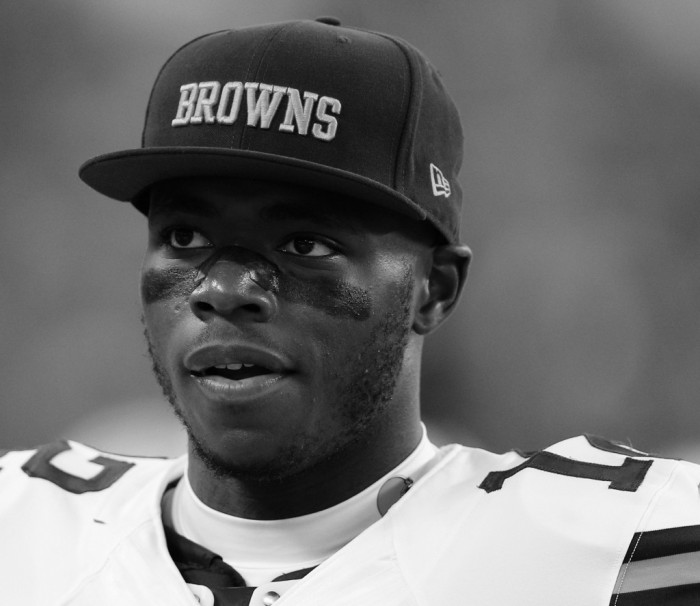A sharp uptick in the number of suspensions doled out by the NFL going into this season has sparked uproar among fans and players alike, leading to negotiations between the NFL and the Players’ Association (NFLPA) over a new drug policy.The new policy would reportedly include relaxed thresholds on substances such as marijuana and human growth hormone (HGH), as well as move amphetamines from under the performance-enhancing drug (PED) policy to the substance abuse policy.
It is uncertain whether the new policy will be agreed upon in time to reverse the suspensions of superstars such as Browns’ receiver Josh Gordon and the Broncos’ Wes Welker before the season kicks off.
While suspensions have always been a hot-button pre-season topic, the spotlight has intensified due to the sheer star power on the list of ne’er-do-wells this season. Nobody bats an eyelash when a replacement-level linebacker, such as the Eagles’ Jake Knott, gets slapped with a four-game suspension, but when the hammer comes down on beloved highlight-makers such as Aldon Smith, Robert Mathis, and Ray Rice, the pitchforks come out.
With some of the biggest names in football on the verge of taking their talents to local car dealerships as the season begins, the NFL has put itself in a delicate position. As evidenced by its willingness to negotiate with the NFLPA, the league isn’t looking to sabotage its own viewership by forcing its most entertaining players to sit out for the season. On the other hand, revising the drug policy would have serious financial repercussions for the league, as previously suspended players would be lining up out the commissioner’s door to file retroactive lawsuits for lost compensation. Cardinals linebacker Daryl Washington will forego roughly three million dollars in suspended salary this season–just one of many players who could potentially bring a million-dollar lawsuit against the league.
The NFL’s current drug abuse thresholds are more stringent than even the Olympics’ drug policy, and the league has nobody to blame but itself for its own lack of foresight. If negotiations with the NFLPA had been initiated by the NFL this off-season prior to the announcement of a slew of high-profile suspensions, player and media reactions may have been respectful and positive. As it stands, the league is stuck trying to preserve its image of authority and legitimacy while backhandedly attempting to grandfather its top moneymakers from a policy that has been known for years to be arbitrarily flawed and unnecessarily strict. There’s also the stack of lawsuits that will be waiting in Commissioner Roger Goodell’s mailbox if the new policy is instated for this season.
According to the Toronto Sun, the amendments to the drug policy would directly affect both Gordon and Welker, opening the door for a reversal or reduction of their suspensions. As for Gordon, who is a repeat offender, a lower marijuana abuse threshold would no doubt reduce the length of his suspension.
Welker’s case is a bit trickier. In a nutshell, reclassifying amphetamines as a banned substance rather than a PED would likely lead to a complete reversal of his suspension. Welker tested positive for the drug in the off-season, and whereas the use of PEDs is grounds for suspension all year round, the substance-abuse policy is only enforced during the season.
As to whether these negotiations are being engineered by the NFL to protect its superstars, we can only speculate upon given the unreliable trickle of information coming from NFL insiders. What can be said with certainty is that it’s going to be mighty tough for the NFL and Roger Goodell to come out of this looking good.








